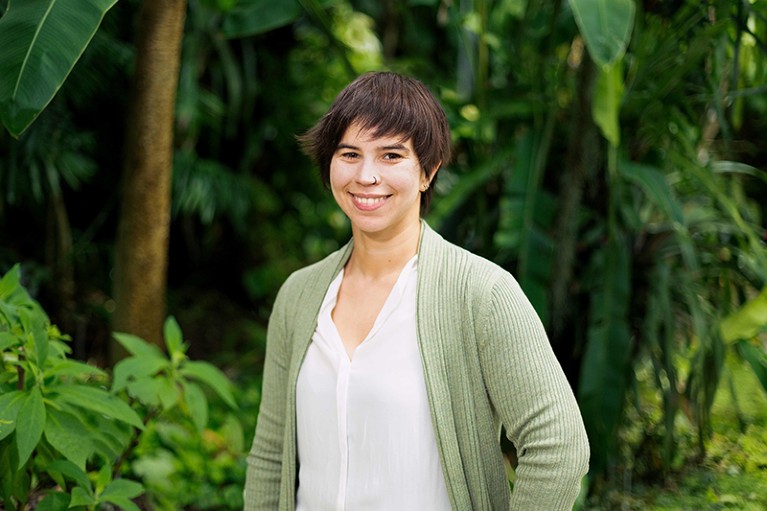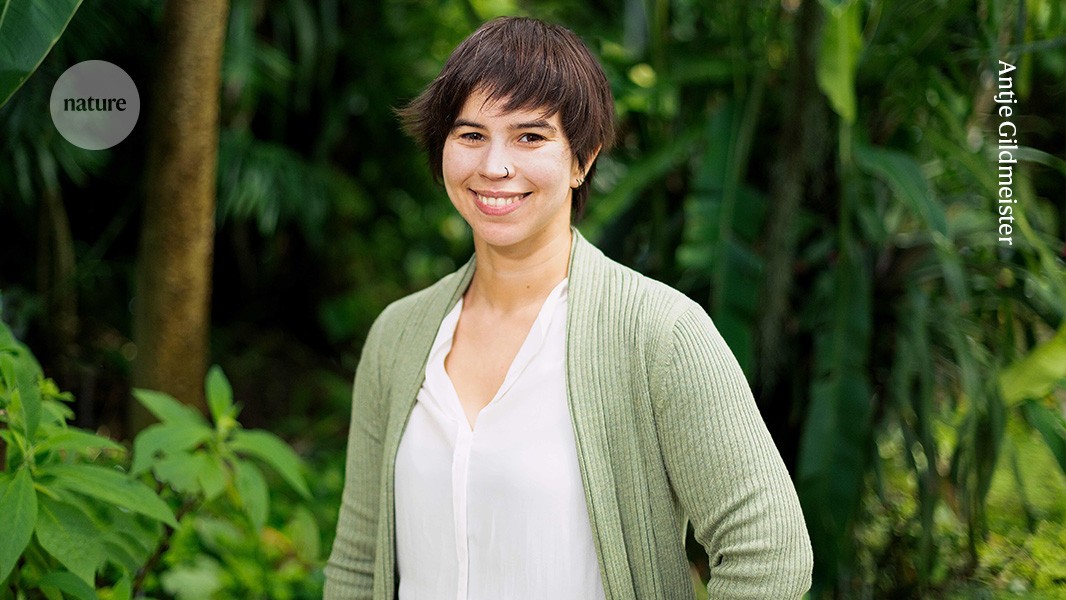
Rather than being a hindrance, an ADHD diagnosis helped Ana Bastos to excel as a scientist.Credit: Antje Gildmeister
Some years ago, an advert caught my eye: “become a bus driver”. I felt tempted. I was in my second postdoctoral programme, juggling several projects, my first supervision duties and teaching — all on top of adjusting to a new country and managing a long-distance relationship. I was exhausted. I told my doctor that my deepest wish was to fall asleep and never wake up. They said this wasn’t good news.
I had been depressed before, so I knew I needed professional help. What I didn’t know was that there was a deeper reason for my permanent anxiety, troubled sleep and frequent cycles of feeling overworked and burnt out. I would find out only years later that these were signs of attention-deficit hyperactivity disorder (ADHD).
This one piece of information changed everything for me, and helped me to see myself through the lens of neurodiversity: not as an outsider, but as someone whose mental make-up is different from that of many other people.
But what could I do about it? Academia is an environment characterized by high competition and uncertainty, with permanent pressure to do more and work faster; social interactions are important, and stiff bureaucracy abounds. These aspects pose major challenges to motivation-driven, highly observant — and thus distractable — brains, such as mine, which often exhibit emotional dysregulation, poor impulse control and a low tolerance for frustration.
While on sick leave, which I took following the burnout that led to my diagnosis, I had time to focus deeply on my thoughts. I realized that my ADHD was part of the reason I had progressed in my career, fuelling, for example, my desire to work across different disciplines. Over the decades of going through school and work undiagnosed, I had developed habits and tools that were very helpful for coping with the neurotypical world.
Here are some of the aspects that helped me most on my way from postgraduate study to a professorship, but the list is far from exhaustive. I hope that these tips might help early-career scientists who are struggling like I did — and sometimes still do.
Keep moving
I realized that the periods when my mental health was at its best coincided with times when I was very physically active by doing sports and dancing, for example, and keeping my brain stimulated by pursuing hobbies such as learning new languages. I make an effort to work sports activities into my weekly schedule, and come up with athletic goals to keep myself motivated.
Physical activity helps me to sleep better and reduces my anxiety. Sometimes, I even go to the pool to swim specifically to think about complicated problems or develop proposal ideas.
Manage energy, rather than time
I have lost count of the hours I have spent trying to implement standard time-management tools, only to ignore countless reminders to take a break while debugging code or staring at the screen, feeling nauseous, trying to ‘eat the frog’ — that is, do the hardest task first.
Instead of managing time, I now manage my motivation by setting daily and weekly goals. On Monday, I add to my planner goals for each day of the week — no more than one big task per day, as well as smaller tasks, and mark the urgent ones. I avoid adding tasks that will require focus on days I know I’ll be prone to distraction. I switch non-urgent tasks between days if I’m just not in the mood to tackle them.
I start my day early so that I can have some distraction-free time, during which I can hyperfocus on tasks I find most motivating, such as writing or analysing data, or cross urgent tasks off my list. The positive kick then helps to keep me going through the day.
Use external motivators
Some tasks still feel difficult without proper motivation. To get those done, I try to find other ways to motivate myself. I prepare a cup of tea and put on my reading glasses and headphones, and my brain is ready to go. Music keeps my brain stimulated and can induce certain moods. For example, I have a playlist I listen to when preparing proposal defences, and dance frantically for a few minutes before giving one.
I assign rewards, such as going swimming or watching a film, for completing certain demanding tasks. I set my own deadlines for everything, typically days or weeks before the real ones, to ramp up urgency-driven motivation. Plus, the buffer time allows time for final revisions to fix mistakes.
Organize
Keeping an organized space and workflow reduces distractions and helps me to avoid mistakes and keep track of things I would otherwise forget. I always carry my weekly planner, and use it not just to manage tasks, but also to keep notes, ideas and travel plans in one place. I write down everything important — and when I know I will need a reminder about a deadline, I mark it in my planner and set a reminder on my mobile phone.
I break large projects into small tasks, which feel less overwhelming, and then plan backwards, scheduling each task on the basis of the timeline I’ve set.
Seek help and find allies
Academia can be a lonely place when you are struggling with your mental health or are adjusting to new career demands. The pressure to shine, along with social stigmas about mental illness, can make it hard to be open about the challenges you’re facing. Institutional support for mental health is often missing or inadequate. Seeking advice from a physician is key to avoid spiralling. I am sure I would not made it this far in my career without medical help and therapy.
Equally important was meeting trusted colleagues and mentors to whom I could turn for advice or to vent. They gave me the strength to keep going and showed me that, under the glitter of exciting news and success stories, there’s a less perfect but more authentic and empathetic side of academia.
Take charge, one step at a time
As your career progresses, new responsibilities and challenges will arrive. I now accept I need more than a year to adjust to new environments, and that, in that time, I will probably have to develop new habits to adjust to new settings.
It is not always easy to identify the sources of stress, let alone determine what changes in behaviour or perceptions might help in adjusting to new situations. I try to be kind to myself when everything feels overwhelming or when I fail to keep up with expectations. I know that by patiently embracing this path, I will eventually, but slowly, regain my balance.
I realize now that a career in science can be a great option for naturally curious, creative, observant, tenacious and highly energetic minds. But accommodating these individuals requires acknowledging diverse ways of thinking, working and communicating, and promoting inclusive working environments. All would benefit from this approach, neurotypical and neurodivergent alike.


